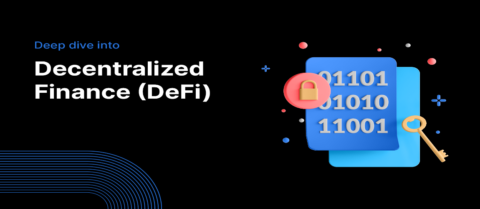If you would have asked someone about blockchain a few decades ago, it would have been mocked and brushed off as something of least importance. However, with time, blockchain has evolved into a powerful network with different variations depending on the configuration and build. Simply put, blockchain can be segregated into three variants which include private, public, and permissioned blockchains.
Although most blockchain users confuse permissioned and private blockchain as different types, they are one and the same. So, let us learn more about Public and Permissioned blockchain to understand their real-time use cases.
Public vs. Permissioned Blockchain
Public blockchain allows everyone to join & participate in core activities happening within the intricate blockchain network. On the other hand, private blockchain ensures a restricted entry of participants that are verified by the operators who have the right to edit, override, or delete any necessary blockchain entries. Simply put, public/private+closed blockchain equals permissioned while public/private+open blockchain equals permissionless network. Today, permissioned blockchains are popular among users, given their potential to allocate certain specified permissions to different users within the network. Now, let us understand the applications of public and permissioned blockchain.
If you have ever dabbled in the cryptocurrency world, you would understand how popular they are in terms of finance and investment. However, not all cryptocurrencies that exist today belong to the public blockchain platform. Renowned cryptocurrencies like Litecoin, Bitcoin, and Ethereum tend to use a public network. However, the application isn’t just limited to cryptocurrencies. Governments can use public blockchain networks as a secured voting platform or for streamlining healthcare records. Public blockchain works more as a B2C solution.
Permissioned Blockchain Use Case
Whether it is public or private, both can be characterized as permissioned blockchains. They tend to restrict the user’s access to a said network to some limited nodes. Moreover, it also restricts the rights that a user might have on the nodes within the network. The identity of the permissioned blockchain user is known to other users within the same blockchain. Some popular frameworks that follow permissioned blockchain protocol include names such as Corda, R3, Quorum, B3i, Hyperledger, and more. These blockchains are popular due to their appropriate governance structure. They are wellorganized and aid administrators with fast data-keeping or network updates. They are considerably faster as compared to the public blockchain networks. Talking about its application, Consortium/Federated blockchain falls within this category. These networks don’t allow external individuals to partake within the blockchain. It gives users access to higher scalability, making it the perfect choice for enterprises in need of control and command. While public blockchain is free, permissioned blockchain does come with a cost. However, the cost factor is justified due to the fast transaction speed and high efficiency. Moreover, the use of permissioned blockchains requires low energy consumption, which helps in cost-savings and also aids the environment.
Conclusion
Permissioned blockchains are the future for organizations in need of secure networks. Public blockchain with a closed network (Permissioned) is perfect for voting records, voting, or whistleblowers. Similarly, a Private blockchain with a closed network (Permissioned) is perfect for applications such as national defence, construction, military, law enforcement, and tax returns. Public blockchains with an open network (Permissionless) work well with the betting industry, currencies, and video games. Finally, private blockchains with an open network (Permissionless) work well with the supply chain industry, government financial records, & corporate earnings statements.










